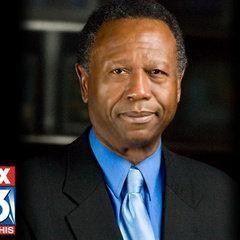Well, to the surprise of no one, national political columnists began last week to suggest that national Democrats should write the South off for any major election from this point forward. This came in the wake of the defeat of Mary Landrieu recently, as Louisiana failed to reelect her to the United States Senate for a fourth term.

No, it’s not good right now for Southern Democrats, confined, for the time being, to urban areas and rural areas dominated by people of color. Why, indeed, shouldn’t we say to hell with it and all move north, or east, or to California?
Because we love it here, that’s why, and the South is worth fighting for. We have to do it slowly; what happened here didn’t just happen overnight with the election of Barack Obama, though that may have brought things to a head. So, how did we get to this place?
Part of the problem for Democrats in the South is that many people were Democrats not based on a liberal or progressive ideology, but because those #$%@ Republicans started the War of Northern Aggression, as it is inaccurately referred to in these parts. Their mommas, daddies, grandparents, everyone was a Democrat back then.
However, after the Civil Rights Act of 1965 was passed, and southern Democrats began to realize that government assistance was for all people, not just people who looked like them, a slow and steady migration took place. Republicans now control every house of every legislature in the South, even Arkansas.
So, we know how Democrats got here, but how do they swing the pendulum back? The first thing Democrats must do as a party is to stop running away from national Democratic issues and causes. People respect you when you stand up for what you are, clearly and concisely define yourself, and don’t allow your opponents to do that for you. That has been a particular problem here in Tennessee.
What Chris Devaney and the Tennessee GOP are doing with their “Red to the Roots” program to elect Republicans at every level is exactly what Tennessee Democrats should have done 30 years ago, when they had the legislative advantage. Pity that they never conceived that they would be out of power.
The road back for Democrats has to begin at the local and county levels. Whoever is elected on January 10th to succeed Roy Herron as chair of the Tennessee Democratic Party needs to have a plan in place to get the county Democratic parties functional at every level — raising money, recruiting candidates, and honing a message that reflects Democratic values.
To paraphrase the great Howard Dean, we need a 95-county strategy. This is partially to get local Democrats excited and get them working for our values and candidates, and partially to get money out of Nashville and into the outlying counties, like Dean did with his 50-state strategy, by getting money away from Washington and its too-conservative Democratic consultants.
More than anything else, we need to stand for specific values that support families, workers, and small businesses, and not big business, big banking, and Wall Street. Draw that line in the sand and stand by it; respect can only follow.
This isn’t going to be easy, especially when most national media refuse to challenge or call out Wall Street or big business, since that’s who owns national media. It’s hard to get a message that isn’t Fox News or Rush Limbaugh to areas like Weakley or Obion counties, who get their televised local news from Paducah, Kentucky, Cape Girardeau, Missouri, or Harrisburg, Illinois. The same can be said for southern Middle Tennessee, which gets its television news from Huntsville, Alabama.
This is why our new chair and the executive committee will have to build their own communication networks via person-to-person contact and social media to get the message out. That’s where having clear, concise Democratic values and messages are crucial to regaining the trust of people who have been scared off from the Democratic Party.
It’s time to be proud Democrats in Tennessee and throughout the South. The way back starts now.
Memphian Steve Steffens is a Democratic activist and the proprietor of the well-read blog LeftWingCracker.blogspot.com.
